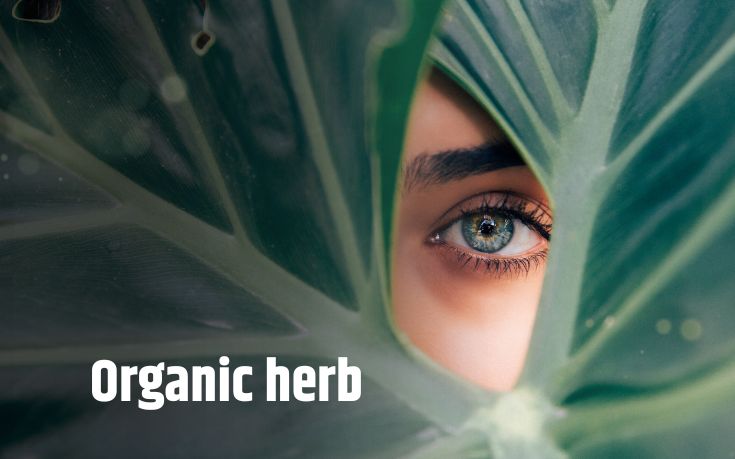Hi, all you city slickers! Want to raise a successful organic herb garden but think you don’t have the space?
Think again! You can grow fresh herbs organically right from your living space—yes, even in a small apartment. Fresh herbs give a real punch to every dish. They are full of loads of healthful benefits, along with the joy of eating what you raise yourself right in the kitchen. Now, let’s begin with how to get your little urban oasis started right inside your apartment.
Organic Herbs Production
Here are many advantages to growing your herbs. Fresh, organically grown herbs do not contain any pesticides or chemicals, so you only ingest the healthiest ingredients. Moreover, home-grown herbs taste way more frequently than store-bought ones, which lose their potency in transportation and storage.
Another reason herb gardening is great is that it brings one closer to nature and adds some green to the living space. It is a soothing, very rewarding hobby able to improve mental well-being. Another added advantage is that having your herbs will save you money in the long run since you will not need to buy expensive fresh herbs from grocery stores.
Choosing the Right Herbs
Not all herbs are created equal when it comes to apartment gardening. Some herbs do better indoors than others. A few beginner-friendly options include the following:
Basil Organic Herb
It needs sunlight and is great in pasta dishes, salads, and pesto. This herb does very well under direct sunlight.
Mint
Fast-growing, mint is used in teas, desserts, and even cocktails. It does well in partial shade.
Thyme
Quite sturdy, it is multi-use for most meats, soups, and stews. It tolerates light shade.
Parsley
It’s easy to grow, and it’s excellent for garnishes and salads.
Cilantro
It is excellent for Mexican and Asian dishes but does require full sun.
Chives
This herb gives most dishes a light onion taste.
Choose your herbs based on your cooking style and the available lighting conditions in your apartment.
Finding the Perfect Spot
Herbs need a lot of light. Most herbs require at least six hours of direct sunlight daily. Plants placed at any south-facing window are ideal, although they can be located at any east- or west-facing windows. If you have a modest natural light supply, then you may want to consider investing in some grow lights, which provide the correct range of light spectrum necessary for healthy plant growth.
Your herbs will also need good aeration so that they don’t catch mold and mildew. Keep them out of places that are very humid or tiny in space. Make sure to have them in a location where the air regards around them well so that they can be healthy and hardy.
Containers and Soil
The success of your herb garden is also highly dependent on choosing the right containers and soil.
Use pots that have drainage holes in them because water-logging can be prevented. Terra cotta pots in this respect are wonderfully popular because they allow convenient air circulation around the roots. But any container with proper drainage will work.
On the side of the soil, choose a good, organic potting mix.
Do not use garden soil in your containers because it is dense.
More to that, a good potting mix should be light and well-drained with plenty of nutrition for the optimal growing of your herbs.
Planting and Care
Now, once you have chosen the herbs and containers, it will be time to plant them. Fill the pots with potting mix. Place your herb seeds or seedlings per the directions on the seed packet or the plant label.
Keep the soil constantly moist but not waterlogged. Note that overwatering can be as dangerous as underwatering, so check for soil moisture before watering. Most herbs like to dry a bit between clean waterings.
Use organic liquid fertilizer, and feed your herbs every few weeks for healthy growth. Pay attention not to over-fertilize, otherwise, this will give the herb extra foliage with less flavor.
Pruning and Harvesting
Pruning and harvesting your herbs properly will keep them healthy and in continuous supply. Trim your herbs regularly, as this will prevent legginess and encourage bushier growth. Just nip off the very tip of the stem, just above a set of leaves, and it will branch out.
Harvest your herbs often, but never take more than one-third of the plant at any one time. This allows the plant to recover and maintain new growth. Use sharp scissors or pruning shears to create clean cuts that reduce the amount of stress on the plant.
Pests and Problems
Even growing herbs indoors can have its issues with pests. Common pests are aphids, spider mites, and whiteflies. Some organic pest control includes insecticidal soap or neem oil. You may even use a homemade solution made from water mixed with a little dish soap.
In case of diseases characterized by discolouration of leaves, mold, etc., remove such parts to avoid transmission. Proper ventilation and not allowing overwatering can prevent many problems.
Creative Growing Solutions
Small apartment space should not limit your herb gardening dreams. There are countless creative solutions to growing herbs even in a small apartment. This includes vertical gardens, hanging planters, and window boxes, which can bring out the most of your space with herbs and serve as indoor decor.
In case you are into soilless gardening, then consider a hydroponic system. The water enriched with nutrients will aid in growing plants in this system. It’s also the best for setting up an indoor herb garden within limited space. They are also less prone to pests and diseases.
Enjoying the Fruits or Organic Herbs of Your Labor
Now the fun part—using them in your cooking! Fresh herbs can elevate the flavor of any dish. Experiment with different herbs and recipes to find new favorite flavors in your soups, stews, salads, and even desserts.
Dried or frozen herbs will also serve to stock up on those that are out of season. You can store dried herbs in tightly closed containers and frozen herbs in ice-cube trays with a little water added or olive oil.
Final Words
You can grow your organic herbs in an apartment, and it’s also highly rewarding. A little care and correct choices will help in the growth of fresh, flavorful herbs throughout the year. This small urban oasis not only provides pleasure and better health but also gives a touch of nature to your interior.
So, roll up your sleeves, take some pots, and begin with your Herb Garden today. Happy gardening!





